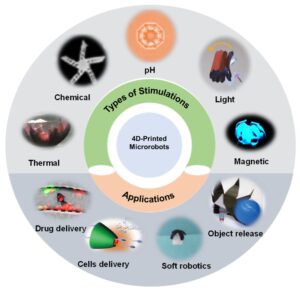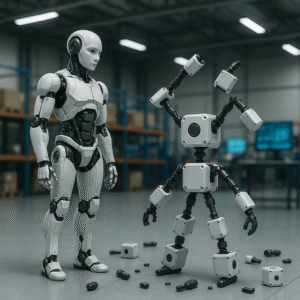Teams from more than 20 countries are preparing to compete in the inaugural World Humanoid Robot Games in Beijing, launching August 15. Events include humanoid soccer, dance, track-and-field, and industrial handling tasks. (Reuters)
Meanwhile, U.S.-based OpenMind raised $20 million to develop FABRIC, an open robot operating system that allows humanoid robots to verify identity and share context. Its aim is to enable seamless coordination between machines and with humans. (Robotics & Automation News)
Games Showcase Robot Decision-Making
Chinese team Hephaestus, including the T1 robot, just won adult-size gold at RoboCup in Brazil. Their Hephaestus robots are now training for soccer and other games in Beijing. The events will test robot perception, strategy, and adaptability through AI-informed competition. (Reuters)
Organizers and researchers view the games as a practical simulation to refine industrial and service robotics. Skills honed on the field include navigation, gesture recognition, and object manipulation. (Reuters)
OpenMind Builds The Nervous System For Humanoids
OpenMind’s new FABRIC protocol is designed to coordinate agents, share task context, and adapt to novel environments. The platform aims to support multi-robot collaboration in complex scenarios. (Robotics & Automation News)
The $20 million funding round was led by Pantera Capital with support from venture firms in AI and hardware. OpenMind says its OM1 operating system will be hardware-agnostic and open source. (Robotics & Automation News)
Why It Matters
The Games will serve as a high-profile testbed for humanoid skills applicable to logistics, healthcare, and service sectors. OpenMind’s system addresses the lack of standardized intelligence infrastructure for robot coordination. Together, they signal maturation in robotics from isolated hardware to integrated ecosystems. (Robotics & Automation News; Reuters)
Sources: Reuters (World Humanoid Robot Games preparation), Robotics & Automation News (OpenMind funding and protocol)




